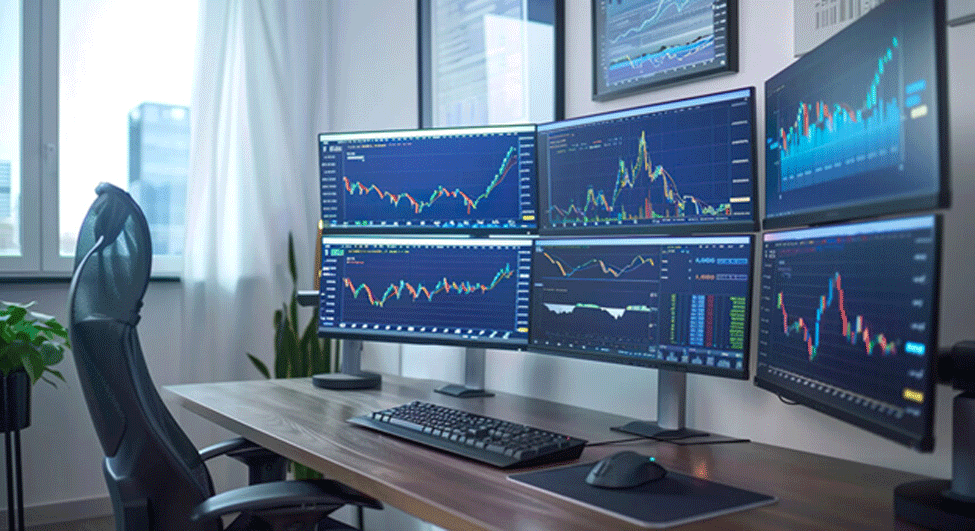Introduction to Day Trading Futures
Day trading involves buying and selling financial instruments within the same trading day, aiming to capitalize on short-term market movements. One of the most popular instruments for day traders is futures contracts. These contracts obligate the buyer to purchase, or the seller to sell, a particular asset at a predetermined future date and price. Traders are attracted to futures due to their high liquidity, leverage potential, and the ability to trade a wide variety of assets, from commodities to indices like the e-mini S&P 500.
Getting Started with Day Trading Futures
Embarking on a futures trading journey requires a solid foundation of education and research. Understanding the mechanics of futures contracts and the markets they represent is crucial. Choosing a reliable futures broker is equally important, as a good broker provides the necessary tools, support, and a stable platform. Creating a trading plan is the next step; this plan should outline your trading goals, risk tolerance, and strategies. Before committing real money, practicing with simulated trading accounts can help you gain confidence and refine your strategies.
Essential Tools and Platforms
Successful day trading relies on having the right tools at your disposal. A robust trading platform is essential, providing fast and reliable execution of trades. Charting software helps in visualizing market data, identifying trends, and making informed decisions. Access to real-time news and data feeds ensures that you are always aware of market-moving events. Advanced trading tools, such as algorithmic trading systems and custom indicators, can give you a competitive edge.
Technical Analysis for Day Trading Futures
Technical analysis is a cornerstone of day trading, focusing on price charts and market patterns to forecast future price movements. Understanding price charts and the various types of charts (candlestick, bar, line) is the first step. Key technical indicators such as moving averages, Relative Strength Index (RSI), and Bollinger Bands help in identifying market conditions. Recognizing patterns and trends allows traders to predict potential price movements. Using technical analysis effectively aids in determining precise entry and exit points.
Day Trading Strategies
Day traders employ various strategies to capitalize on market movements. Scalping involves making numerous small trades to profit from minor price changes. Momentum trading focuses on trading stocks showing strong price trends and high volume. Breakout trading seeks to enter trades as the price breaks through significant support or resistance levels. Mean reversion strategies bet on prices returning to their average after deviating significantly. News-based trading leverages market reactions to news events to make quick profits.
Risk and Money Management
Managing risk is paramount in day trading futures. A comprehensive risk management plan helps protect your capital from significant losses. Position sizing ensures that you do not overexpose yourself to any single trade. Using stop loss orders can assist in limiting losses. Slippage may occur depending on the liquidity at the time the stop loss order is elected., potentially limiting losses.
Psychological Aspects of Day Trading
The psychological aspect of day trading is often overlooked but is critical to success. Maintaining emotional control helps in making rational decisions rather than impulsive ones driven by fear or greed. Developing discipline ensures adherence to your trading plan and strategies. Overcoming the psychological hurdles of fear and greed can significantly improve trading performance. Building a winning mindset involves constant self-improvement and learning from mistakes.
Advanced Techniques and Concepts
For those looking to take their trading to the next level, advanced techniques such as order flow analysis can provide deeper insights into market behavior. Volume Profile shows the distribution of trading volume across different price levels. Market Profile (TPO) organizes price action into time-based profiles, helping to identify significant price levels. High-Frequency Trading (HFT) uses sophisticated algorithms to execute a large number of trades at very high speeds, though it’s typically out of reach for individual traders.
Case Studies and Examples
Learning from real-life trading scenarios can provide valuable insights. Analyzing successful day trading examples reveals strategies and techniques that worked well. Conversely, examining common mistakes and understanding how to avoid them can help in refining your approach and preventing costly errors.
Continuous Improvement and Adaptation
The financial markets are dynamic, and continuous improvement is necessary for long-term success. Reviewing and analyzing your trades helps in identifying strengths and weaknesses. Keeping up with market changes ensures that your strategies remain effective. Ongoing education and development, through reading, attending webinars, or participating in trading communities, keeps your skills sharp and your knowledge current.
Day trading futures offers the potential for significant profits, but it requires a disciplined approach, continuous learning, and effective risk management. By understanding the basics, utilizing the right tools, and developing robust strategies, aspiring day traders can improve their chances of success. Remember, the journey is continuous, and staying adaptable and informed is key to thriving in the ever-evolving world of futures trading.
Ready to start trading futures? Call US 1(800)454-9572 – Int’l (310)859-9572 email info@cannontrading.com and speak to one of our experienced, Series-3 licensed futures brokers and start your futures trading journey with E-Mini.com today.
Disclaimer – Trading Futures, Options on Futures, and retail off-exchange foreign currency transactions involves substantial risk of loss and is not suitable for all investors. Past performance is not indicative of future results. You should carefully consider whether trading is suitable for you in light of your circumstances, knowledge, and financial resources. You may lose all or more of your initial investment. Opinions, market data, and recommendations are subject to change at any time.
Important: Trading commodity futures and options involves a substantial risk of loss. The recommendations contained in this writing are of opinion only and do not guarantee any profits. This writing is for educational purposes. Past performances are not necessarily indicative of future results.
**This article has been generated with the help of AI Technology. It has been modified from the original draft for accuracy and compliance.
***@cannontrading on all socials.





